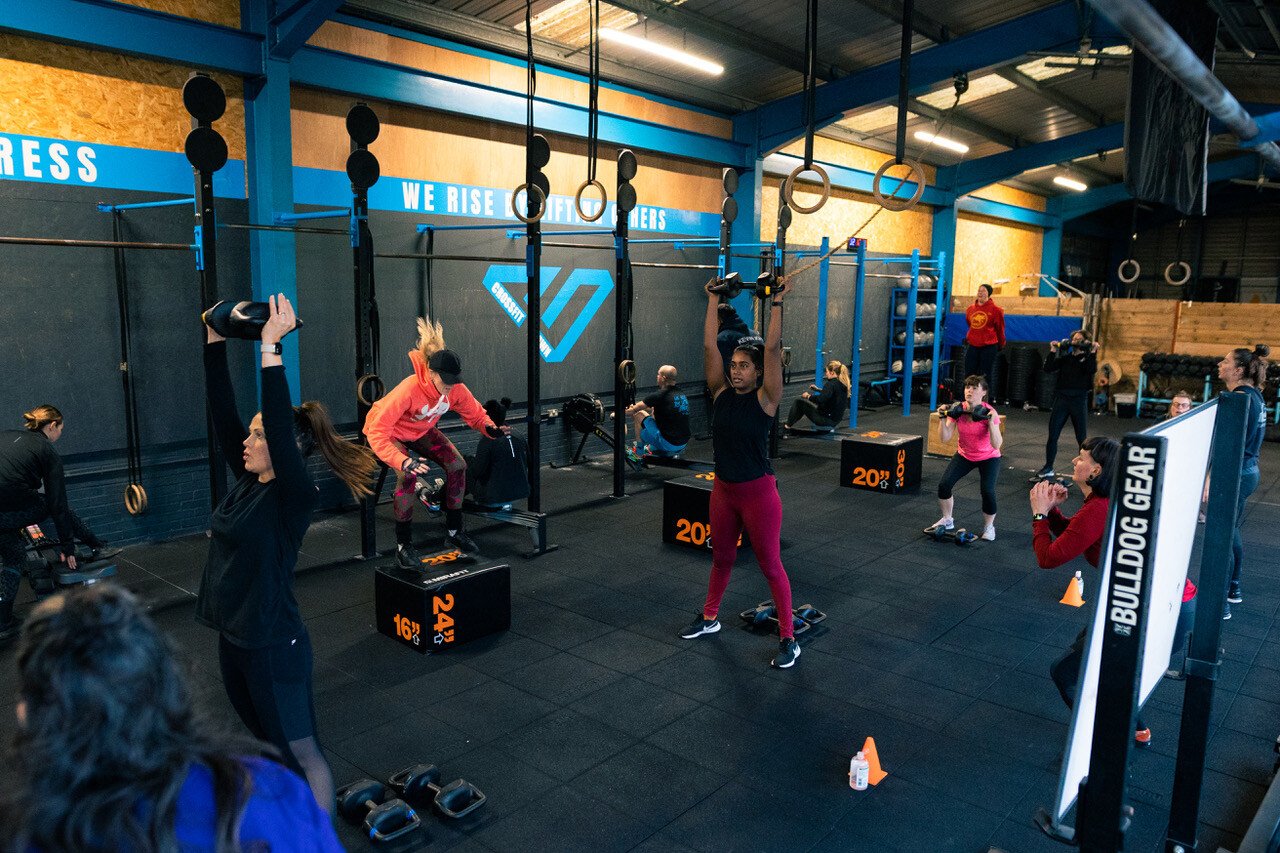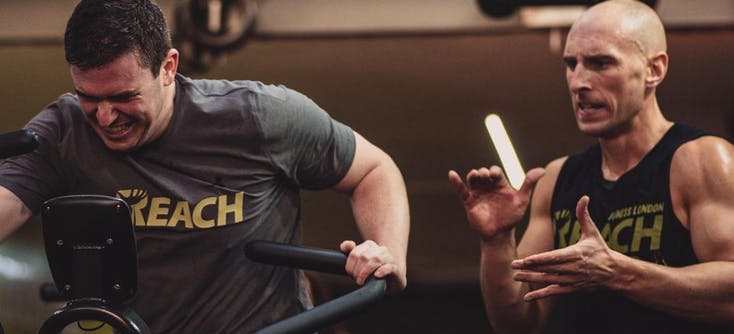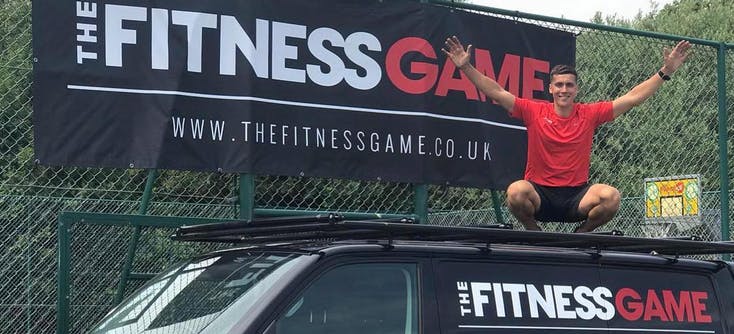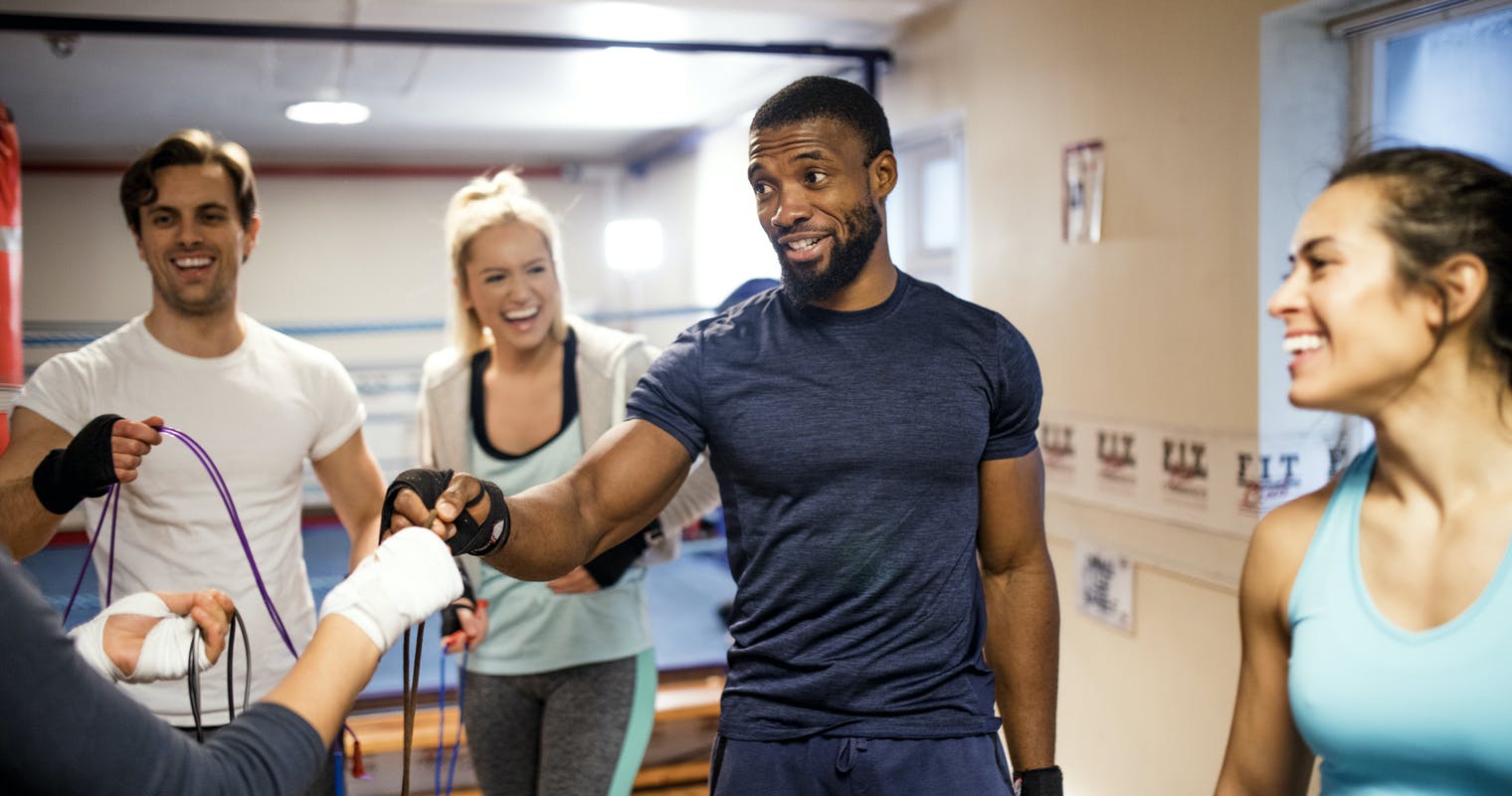Are you passionate about fitness and want to share your knowledge with others?
Becoming a fitness instructor could be the perfect opportunity to pursue your passion while helping people achieve their physical goals.
Anyone can become a successful fitness instructor with the proper credentials, qualifications, and experience.
This article will discuss the steps necessary to become a fitness instructor and how to succeed in the field.
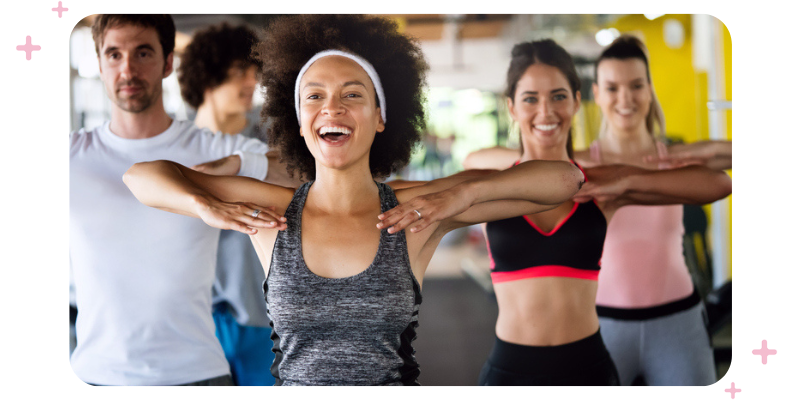
What kind of education do I need to be a fitness instructor?
If you are interested in becoming a fitness instructor, there are five potential courses of study to explore.
- Vocational college
- A Bachelor's or Master's degree
- Certification by a U.S. fitness association
- Internal gym programs
- Unaccredited online options
Regardless of which option you choose, each has its own educational program and certification process.
Once completed, you'll be awarded a certificate from your chosen institution or course provider that accredits you as a fitness instructor. Remember to check if your chosen option is accredited!
Learn more: Fitness trainer certifications in the US,
Fitness trainer certifications in the UK & Europe
10 tips for becoming an exceptional fitness instructor
Fitness programs come in many shapes and sizes, just like our bodies! With so many paths to choose when starting or pushing forward your career journey, deciding which route is best for you may take some work.
That's why we are here with some valuable tips that will help you take the first step toward making a positive difference in people's lives through physical fitness - let's get started!
Do your due diligence
To embark on a career as a fitness instructor, it's important to know what type of instructor you'd like to be.
- Are you passionate about leading group exercise classes?
- Or maybe personal training is more your style?
- Perhaps you can consider becoming a hybrid instructor?
- Would you prefer working at a health club or small studio - or remotely from home?
Knowing the answers to these questions will help guide and structure your journey toward success in this exciting field.
Earn a diploma
Employers generally look for instructors with a high school diploma, although in some cases they may require candidates with an associate's or bachelor's degree in exercise science, physical education, or kinesiology.
To equip yourself to best assist clients in achieving their goals and objectives, you should explore coursework in biology, anatomy, nutrition, and exercise techniques to develop your knowledge and skills further.
Equip yourself with CPR and AED certifications
Obtaining current CPR and AED certifications is essential to become a certified fitness instructor. Not only do many professional fitness programs require these credentials, but they also provide trainers with the capability to offer first-aid assistance in a crisis.
By completing cardiopulmonary resuscitation (CPR) and automated external defibrillator (AED) certification courses, you will gain the necessary knowledge to serve your clients until medical help arrives in case of an emergency.
And the best part is, obtaining your AED and CPR certifications has never been easier or more affordable; they cost roughly $55, and you can achieve full certification in just four hours!
Decide on a fitness niche to specialize in
By carefully exploring the selection of specialized classes at a fitness center, such as yoga, spin, pilates, HIIT, dance, kettlebell, and weight lifting sessions, you can accurately discover which facility best suits your professional goals.
In addition to this clarity in finding employment opportunities or personal training clients- focusing on one particular class may also give you more confidence!
Build your strength, endurance, and overall fitness with various training plans to address all facets of health.
- Strength or resistance training helps build muscles through specific exercises designed for that purpose
- Cardio fitness classes allow you to jump-start your metabolism with cycling, running, step aerobics, or dance moves
- High-intensity interval (HIIT) alternates between intense exercise bursts and rest periods.
- Functional fitness routines like CrossFit target everyday activities such as carrying groceries up the stairs!
- Yoga harmoniously combines postures, breathing exercises, and meditation principles
- Pilates bolsters muscles while stretching the body for increased suppleness and correct posture alignment
- Senior fitness educators craft exercise regimens tailored to meet the needs of elderly adults
- Corrective exercise teachers aid individuals in overcoming imbalances or impairments with targeted plans
- Sports performance trainers prepare competitive athletes to reach their peak performance level and protect them from potential harm or injury
If you are considering becoming a trainer, selecting a specialization that reflects your expertise and passions and satisfies your commercial objectives is essential.
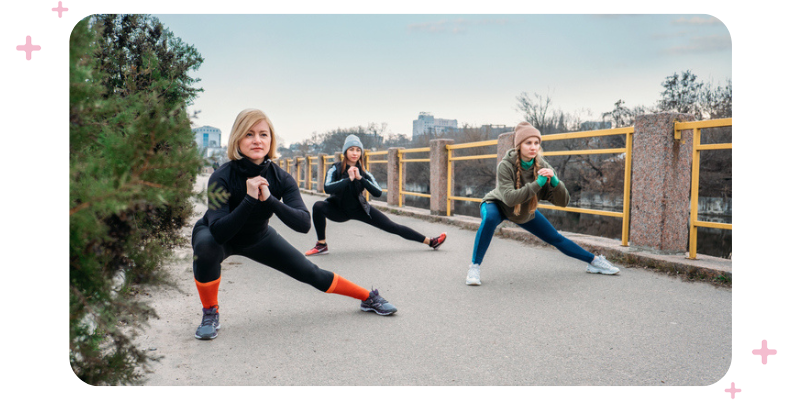
After establishing what fitness area you want to focus on, research the certifying bodies offering applicable qualifications for each specialty.
Before making any firm commitments, reflect on which specialty best fits your goals and aspirations.
Unlock your potential and become certified!
Becoming certified is an excellent way to demonstrate your knowledge and capabilities to possible employers or clients. Many fitness professionals usually begin with acquiring a general certification.
Most gyms require that group fitness instructors have certifications, while fitness instructors should be authorized before working face-to-face with customers in most scenarios.
The American Council on Exercise (ACE) and the Athletics and Fitness Association of America (AFAA), alongside the National Academy of Sports Medicine (NASM), are acclaimed certifying organizations for basic exercise instructor credentials.
You can also opt for specialist fitness certification programs such as yoga, pilates, indoor cycling, and Olympic weightlifting certifications.
To get ready for the exam, you will have to study diligently. A plethora of online practice questions are available; not only that but there are also plenty of prep courses accessible on the internet!
Ensure you understand the material thoroughly before registering so your confidence level is high when it comes time to take the test.
Conquer your exam and earn recognition for your expertise
When you feel prepared and excited about becoming a gym instructor, the next step is registering for your exam.
Generally speaking, this requires an application form along with paying your fee. The test will likely be administered on a computer, consisting of between 120 and 150 questions.
However, variations may occur depending on each individual's particular examination.
For instance, the Certified fitness instructor Certification from the National Academy of Sports Medicine (NASM) includes questions covering four different subject areas: Program Planning; Client Consultation and Fitness Assessment; Exercise Techniques; and Safety/Emergency Issues.
Revising past test questions and utilizing practice exams for preparation will ensure higher chances of success. Once certified, you'll be ready to embark on a rewarding journey as a fitness instructor!
Never stop learning
With the ever-growing amount of knowledge surrounding human anatomy and physical health, it's essential to stay in tune with what's new if you want to teach others.
Obtaining CEC credits ensures that your certification is updated based on the latest exercise science discoveries. Use this as a chance for personal growth; learn something fresh or refine an old skill! When you commit to lifelong learning, success will follow quickly.
Apply for fitness instructor jobs
Now that you've got the qualifications to work in various fitness settings, it's time to determine which will suit your needs best.
Begin by going over job postings on NASM and other related organizations. You can additionally get hands-on experience at a local gym or under the guidance of an experienced trainer through shadowing them.
Those who want to take their career into their own hands can also opt to build a client roster from scratch independently.
Before taking any further steps, such as spending countless hours applying for jobs, consider what gets YOU excited first and foremost; this is key when figuring out what type of environment works best for you!
Take control of your career and only target the positions that meet your needs.
You can save time by utilizing these questions to determine if any given job is right for you - or, perhaps, you'd prefer a more autonomous path. Carefully consider:
- What is your ideal work environment?
- Do you want to be in-person, online, or both?
- Are large group training your preference, or do individual sessions excite you more?
- Would working independently make you happier than being someone else's employee?
- If the latter applies to you, would a big box gym better suit your style, or are boutique gyms where it's at for you?
If gaining experience is your goal, you should connect with the staff at your current workplace to see if any opportunities are available. This will significantly increase your chances of landing a role.
Amplify your online presence and get noticed!
Congratulations! You have taken the necessary steps to become a professional fitness instructor. Now, how do you get noticed?
The best place to start is social media. Establish your presence on social media platforms like Facebook, Instagram, TikTok, and Twitter. These outlets help spread awareness about what you offer and highlight your knowledge in this field of work.
LinkedIn is an effective tool for connecting with potential employers and colleagues within the health & fitness industry.
Lastly, crafting blog posts that are both informative and inspiring will help you stand apart from competitors in your field.
Share helpful tips, such as how to become a yoga instructor or design an efficient training plan for customers, so readers can benefit from your expertise. You'll be sure to garner the attention of potential clients if you post valuable content!
Learn more: Marketing your business on social media
Invest in liability insurance
The National Safety Council reported 377,939 exercise and equipment-related injuries in the U.S. last year.
Before becoming a fitness instructor or teaching fitness classes, ensure that you have adequate liability insurance to protect yourself from any potential claims.
To be safe, consider seeking advice from an experienced legal professional if you are unsure of your coverage needs.
Learn more: The top fitness and personal trainer insurance providers
9 skills a fitness instructor needs
As a fitness instructor, you must possess certain qualities to excel in this profession.
From knowledge of human anatomy and exercise science to assessing how clients can safely reach their goals quickly, many skills will make you successful as a fitness instructor.
Let's explore some of these key qualities and how they can benefit you in this role.
Fitness assessment
Trainers can become familiar with fitness screening strategies, assess the ideal evaluation based on their individual and environment, and recognize risk factors that could affect their client's well-being.
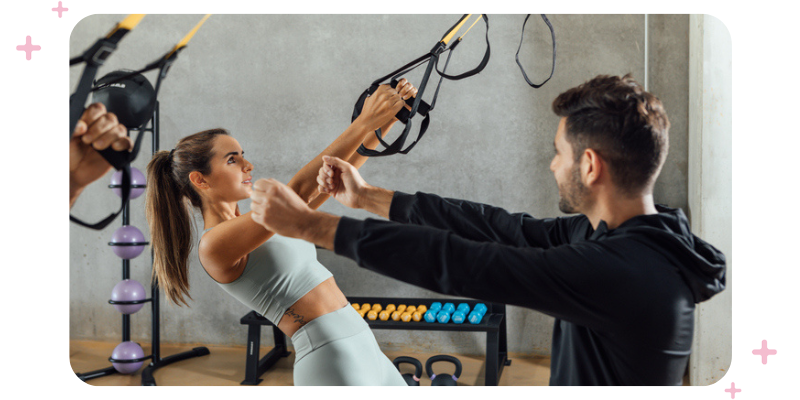
Learn more: Fitness Assessments
Communication
As a fitness instructor, it is essential to possess the ability to communicate effectively. You must provide instruction and guidance for clients to reach their objectives while being attentive and responsive to individual needs.
This kind of leadership necessitates ethical conduct and an aptitude for motivating others by delivering information clearly and effectively.
Active listening
This will give you in-depth knowledge of your clientele's capabilities, barriers, and objectives to keep fit.
Motivational skills
To help your clients stay motivated and pursue their fitness goals, consider learning motivational techniques to create a powerful impact.
Problem-solving
Every client is unique, so you must hone your problem-solving skills to determine which fitness solutions specifically cater to each person's requirements.
Customer service
By showing your clients the utmost respect, kindness, and care, you can cultivate long-term relationships that will help foster loyalty.
Nutrition and weight management
A good understanding of how you can use nutrition to assist in weight management and how diet affects both health and performance is invaluable for fitness instructors.
Additionally, one should know how different foods affect the body, how to construct balanced meals, and devise healthy eating plans tailored for individuals.
Analytical thinking
As a fitness instructor, you must possess the ability to think analytically and problem-solve quickly. You must be able to incorporate your understanding of physical activity science and how it pertains to each client.
Analytical thinking can help fitness instructors create effective training plans that lead to meaningful results for their clients.
Exercise mechanisms
Fitness trainers must have a thorough knowledge of how the body responds to physical activity.
Understanding how each exercise works and how it impacts different muscles, organs, and systems can help trainers build effective workout plans for their clients.
Additionally, understanding how form affects performance will ensure that your clients do not suffer any unnecessary injuries due to improper technique.
These are just some of the skills required to become a fitness instructor. By developing these qualities, you can not only stay competitive in this field but also ensure that your clients receive the best service from you. Being an effective fitness instructor is all about knowledge, preparation and practice!
How much time should you spend getting a fitness instructor certificate?
When scheduling an upcoming certificate, factor in your responsibilities and workload first.
Depending on your course, dedicate anywhere from three to six months for preparation.
During this period, plan on devoting roughly 75-100 hours between studying materials, passing practice exams and quizzes for refreshers of knowledge imparted within lectures or classes if required - remember to attend a hands-on practicum session too!
Knowing your target test date, you can construct a plan to break down the chapters into manageable sections each week and month in preparation for it.
How much can you make as a fitness instructor?
So, how much money do fitness instructors make?
The earning potential for a fitness instructor can vary significantly depending on their employment status, with those running their own business having the potential to earn more than those working for a gym, who may earn a salary or hourly wage.
In 2021, the U.S. Bureau of Labor Statistics reported that fitness instructors earned a median annual salary of $40,700, with half earning more than this amount and half making below it.
Furthermore, the lower 10% earned less than $22,960, while the highest-paid 10% pocketed over $75,940 in earnings for their jobs as fitness instructors.
Depending on which gym one works for would determine whether or not you will have to find your clients- those who do usually earn sales commissions according to each new sign-up they get for their services!
Furthermore, additional incentives exist for achieving sales objectives and convincing clients to extend their contracts once they have finished the training program.
Frequently asked questions (FAQ) on how to become a fitness instructor
What are the minimum qualifications you need to become a fitness instructor?
The qualifications you'll need to become a fitness instructor depend on the type of training and certification program you pursue. Generally, however, aspiring fitness instructors should have a minimum of a high school diploma or equivalent. Additionally, most accredited programs require hands-on experience and passing an exam before awarding certifications.
Is it challenging to become a fitness instructor?
Becoming a fitness instructor is not necessarily tricky, but it does require dedication and commitment. To become certified, specific qualifications must be met, including understanding anatomy, exercise physiology, and nutrition. Additionally, you must have the necessary organizational and communication skills for successful client relationships.
What other jobs can fitness instructors do?
In addition to becoming a fitness instructor, understanding exercise physiology could allow you to pursue other jobs such as physical therapy assistant, strength and conditioning coach, fitness instructor, or health promotion specialist. Additionally, certified fitness instructors may branch out into the health and wellness industry by opening their studios or offering online services.
Can you work in a gym without any qualifications?
Yes, you can work in a gym without having a college degree. Though it is highly recommended to obtain certification, many gyms will hire individuals with prior experience and knowledge of how to train safely and effectively. These positions are typically limited, so having the proper qualifications could benefit career advancement.
Is it illegal to personal train without a certification?
Yes, it is illegal to personal train without a certification. In most states, offering fitness instruction is illegal without obtaining a license or certification. Every country has its requirements, so check with your local government for the necessary paperwork and procedure steps before beginning training services.
Is personal training a good part-time job?
Yes, personal training can be a great part-time job. As a fitness instructor, you get to help people reach their fitness goals while earning an income doing something you're passionate about.
What's the difference between a personal trainer and a fitness instructor?
Personal trainers tailor individualized programs to help clients reach their desired fitness goals. In contrast, fitness instructors lead energetic group classes while motivating participants to stay on track with their health objectives.


